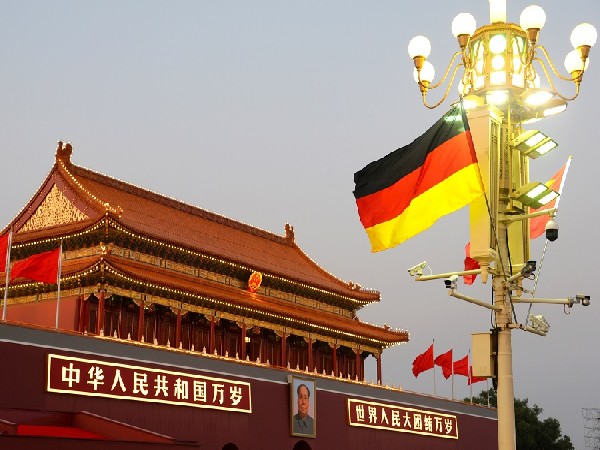
BERLIN: For decades, German industry — an early mover in the Chinese market — looked the other way amid Beijing’s human rights abuses, but now ignoring it is becoming increasingly difficult for Berlin.
Matthew Karnitschnig and Laurenz Gehrke, writing in Politico said that German business is getting queasy about China as Chinese leader Xi Jinping tightens the country’s surveillance state, threatens neighbours and takes on an increasingly belligerent tone with the West.
Germany’s China strategy, shaped to serve the needs of its export industry as managers and engineers from the likes of Siemens and Volkswagen helped transform the country into Germany’s largest trading partner, is looking increasingly unsustainable.
Leading German industry players are joining prominent politicians in calling for a rethink of the country’s approach to China and other autocratic states wrote Karnitschnig and Gehrke.
“Human rights are not the internal affairs of states,” said Siegfried Russwurm, the head of the Federation of German Industries (BDI), adding that companies have “the obligation to define red lines for their global commitment themselves,” instead of waiting on their own governments to do so.
Like many foreign investors in China, German companies were long convinced that they would eventually be on a level playing field with their local counterparts. But Xi, who has put foreign firms on a tighter leash, has convinced them otherwise, reported Politico.
Now, German business, which is more exposed to China than any of its European peers, faces an impossible choice between preserving a crucial trade relationship and observing the liberal ideals Germany holds dear.
Asked how trade could be upheld amid reports of human rights abuses in China, a spokesman for Siemens said in an emailed statement that the conglomerate “categorically rejects all forms of oppression and participation in human rights violations.”
In an effort to help firms square that circle, the BDI recently published a paper titled “Responsible Coexistence with Autocracies.”
The paper underscores the importance for Western firms to “lead by example” on questions of human rights and environmental protection, reported Politico.
Nonetheless, it’s a difficult case to make in the face of Beijing’s suppression of the Uyghurs, its crushing of Hong Kong’s democracy movement, and its belligerent stance toward longtime partners like Australia wrote Karnitschnig and Gehrke.
Some countries, including the US, have labelled China’s actions a genocide.
Not even China’s biggest defenders in Germany are pretending any longer that economic prosperity will turn Asia’s juggernaut into a Western-style democracy, an idea known as “transformation through trade” that has been propagated by German executives and politicians since the Cold War.
German industry’s China debate comes as the country’s political winds are shifting. Both the Greens and the liberal Free Democrats, the two parties expected to join the Social Democrats in forming a new government, take a considerably harder line on China than did outgoing Chancellor Angela Merkel. (ANI)
Also Read: US lawmakers urge IOC to consider alternative locations for 2022 Beijing Olympics





